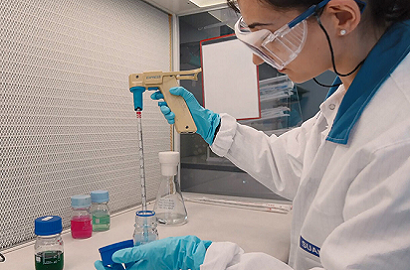Stable employment grows in the pharmaceutical industry
15 October 2018The sector provides over 40,500 direct jobs, 94% permanent and 52% female
The number of jobs in the pharmaceutical industry grew by 3% in 2017, with a significant generation of jobs for young people. Specifically, a total of 1,172 net new jobs were created, increasing the total to 40,565 direct jobs. Growth will be 1.8% this year, according to current estimates, which expect the number of jobs to total 41,279.
Overall, including both indirect and induced jobs, the industry association Farmaindustria estimates that the sector provides jobs for around 200,000 people in Spain. In the case of direct jobs, which are those measured by the Farmaindustria survey, employment in the pharmaceutical industry is stable, with 94.2% of workers on permanent contracts.
Female employment
Other interesting data included in the survey show the high level of qualification of the workers, with 62.4% having university degree; their level of dedication, with only 1.5% of permanent workers working part-time; and the presence of women, with women accounting for 52% of the workforce, twice the average in the industrial sector. This percentage continues to grow, and it is reckoned that 57.7% of the new hires in 2017 were women, compared with an average of 31% in Spanish industry.
In R&D, female employees account for 63.7% of the total, the highest in the Spanish productive sector. Women also have a significant presence in senior management positions, above the average in Spanish companies. Specifically, management committees in pharmaceutical companies include 41.3% of women, 3.4 times the average for companies listed on the Ibex 35 index, where the figure is 12.1%. Women account for 21.5% of high-ranking executives in the pharmaceutical industry, compared with 5.9% in Ibex 35 companies.
Towards wage equality
Although there is a difference between the average salaries of men and women, the gap of 10% is narrower than in any other industrial sector in Spain. The average female salary is among the highest in industry, at 36,344 euros per year.
Another segment of the population benefitted by the creation of jobs in this sector are young people. Those under the age of 30 account for one in four of new employment contracts, and the figure grew by 12.5% in 2017. Farmaindustria forecasts that this year one in three of new employees will be in this age range. If this is the case, those under the age of 30 will in 2018 account for 7% of employees in the pharmaceutical industry, compared with 5% in 2015.




